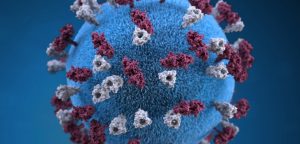How to dissolve plaque in arteries and prevent heart attack and strokes

High Cholesterol is not the cause of the plaque that clogs arteries, eventually leading to heart attacks and strokes. The leading cause of the buildup of plaque in arteries is inflammation.
Inflammation is like an injury occurring inside the walls of arteries, and the leading cause of this injury are toxins called free radicals. Toxic free radicals are generated in the body when we inhale or ingest chemical compounds from air pollutants, pesticides, insecticides, plastics, cleaning chemicals, drugs, etc.
To repair the injury or inflammation caused by free radicals, the body sets in motion processes that are similar to what happens when we have a cut on the skin.
When there is a cut on the skin specialised cells called clotting cells move to the injury site to stop the bleeding. The same process happens when toxic free radicals cause inflammation of the arteries, and clotting cells (also known as platelets) congregate at the site of inflammation to repair the injury. However, the continuous presence of these toxic free radicals in the body means that the inflammation in arteries continues non-stop, and the clotting cells continue to accumulate and attract other stick substances, eventually blocking arteries completely.
Plaque can accumulate in any artery in the body and cause problems to affected organs. In the brain, plaque will cause a stroke by restricting blood supply to an area of the brain. In the heart, plaque will occlude the arteries of the heart and cause high blood pressure, heart failure and heart attack.
Plaque can also block the arteries of the joints, especially the hip joints, and trigger or worsen joint and bone diseases. Hormonal disorders can occur when the arteries of the pituitary gland – the master hormonal gland – is blocked.
The conventional method for managing Plaque in arteries (medically called atherosclerosis) is with Blood thinners such as aspirin and blood pressure medications. The idea is that thinner blood has less resistance and will easily pass through a blocking artery. The reality, however, is that there is no scientific basis for using aspirin to manage plaque, and blood thinners do not stop further blocking of arteries.
The good news is that it is possible to dissolve plaque and prevent arteries from blocking. Serrapeptase is a naturally occurring enzyme that dissolves plaque from arteries. Dr Nieper, a German Medical Doctor, discovered serrapeptase in the 1960s and published several scientific papers proving his discovery.
Serrapeptase is the enzyme used by the silkworm to break out of its cocoon and emerge as a butterfly. Serrapeptase dissolves unwanted and dead tissue in the body while leaving intact, healthy tissue. Dr Nieper showed that serrapeptase helps prevent stents from blocking.
By dissolving plaque in arteries, serrapeptase helps reduce the workload on the heart that causes high blood pressure.
Moreover, serrapeptase also helps dissolve unwanted and toxic mucus in the lungs and joints and helps relieve chronic mucus cough and joint pain.
The best form of Serrapeptase is enteric coated Serrapeptase. Expect the best results at least three months after starting therapy.
Dr Machi Mannu MD






